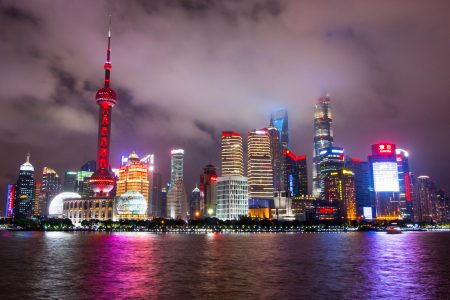I am going to skip a discussion about what the Fed will do next or whether 2023 will bring a recession. These topics are discussed endlessly on the financial news media. Instead I will turn to more structural issues and risks.
1. The War in Ukraine
There are no ready-made solutions for this and there is no condoning Russia’s actions. But it is appalling that America is involved in yet another European war. And that the US Senate like sheep just all cheered and voted another $50 billion to prolong the conflict. Great news for the American military industrial complex. And as an added bonus, Ukrainians and Russians – not Americans – do all the dying.
Wars do not contribute to economic growth or low inflation. Neither does the use of nuclear weapons. The war will continue to drag down global economic growth and stock markets at a minimum. Perhaps for years. Until the US stops sending money and forces the two participants to negotiate.
2. The US War on the Global Semiconductor Industry
As I discussed in a prior Dismal Optimist, with its plethora of sanctions and embargoes on semiconductor and related products to China, the US has declared war on the global semiconductor industry. One could argue that the semiconductor industry is the most important in terms of future human progress. Yes these measures will severely hurt China. But they will also severely hurt American and Western companies which suddenly have had their major market taken away. The shine has gone off the semiconductor industry. I quote C.C. Wei, the CEO of Taiwan Semiconductor:
Geopolitical confrontation has distorted the entire market. Previously, you make a product and could sell it to the whole world. Now, some products are not allowed to be sold, some countries say you are not allowed to enter, while some say you can only use certain [local] products.
That just about says it all. As an aside, showing the Administration’s contempt for the global semiconductor market as well as its contempt for the people of Taiwan, there are those connected with the US government who have advocated a scorched earth policy for Taiwan in the advent of a Chinese invasion. Taiwan is an incredible locus of semiconductor and related industries. According to a Dec 6 article in Asia Times, the US is mulling disabling or destroying Taiwan’s semiconductor factories in the event of a Chinese invasion.
I am not sure this scorched earth policy would be a big hit in Taiwan. And it certainly shows contempt for the Taiwanese people. As well as the global semiconductor market. Luckily, as will be discussed, a Chinese invasion is unlikely.
3. The FANGS Have Lost Their Shine
The FANGS, that is Microsoft, Alphabet, Apple, Amazon, Meta and maybe Netflix, have reached a point in their growth path where they are no longer red hot growth stocks. True, these companies are treasure troves of technology, are overall well managed and certainly not going out of business. Now that they have been repriced for higher interest rates, they may make solid investments for conservative investors. But their very size makes it difficult for them to stay on the torrid growth paths of their younger years. As a group they dominate their original niches. But they do not have many new products that might qualify as true disruptive innovation. For example, Apple’s latest truly disruptive product, the Apple watch, was introduced in 2015. The FANGS compete more and more with one another in such areas as streaming, the cloud and AI.
Finally, the regulators, both in the US and in Europe, seem to harbor an irrational hatred of big companies like the FANGS. Large deals seem to be out. The current hostile treatment of Microsoft’s proposed acquisition of Activision Blizzard is in my opinion an irrational disgrace. But it is the negative reality the FANGS have to endure if they are considering large acquisitions. Regulators in the US and Europe seem to be competing with one another to screw the FANGS.
4. China Has Taken a Turn for the Better
Investors have to take note of this. China has ditched its disastrous lockdown policy and has signaled that the worst of its private sector harassment program is over. No question in the coming few months post lockdown will be difficult in China. And there is the danger of backsliding.
But I do not think China can go back to its old lockdown policy. The country was boiling with anger against the lockdown policy. And then came the World Cup. Virtually all of China was glued to their TV screens watching the World Cup. And they saw thousands of spectators wearing no masks and jammed in arm to arm. And enjoying life. And the Chinese knew in one instant that their own government’s lockdown policy was just plain wrong.
As an aside, Americans should learn from this. Isolation is the food of dictators. Isolation of opponents, whether it be Cuba or North Korea or China, is not in America’s interest.
Finally, once China gets over its post lockdown covid bump, the largest risk to investing in Chinese stocks comes from the American side. Investors never know if some China hater in the American government will get another Chinese stock put on one of America’s sh-t lists.
5. Electric Cars May Turn Out To Be an Disappointing Investment in 2023
Climate Change is a religion and, according to believers like the Biden Administration, no expense must be spared in its implementation. The Biden Administration is showering the industry with subsidies under the assumptions that millions of Americans will want to buy BEVs (Battery Electric Vehicles) and that it is a good idea that they do so. Traditional auto companies as well as Tesla and would be Teslas are gearing up to supply the cars.
Except one major company is unenthused—Toyota. According to the Wall Street Journal, Toyota CEO Akio Toyoda opined that BEVs are just going to take longer to become mainstream than the media would like us to believe. I agree. The Journal article, Not So Fast on Electric Cars, then goes on to list a whole host of problems with BEVs. Problems like in regular cold weather where the cars achieve only 54% maximum range. Problems like complying with government regulations which can bring a nightmare of problems for charging stations and a huge long run financial maintenance problem for the states.
The bottom line is that BEVs are a government project not a free market project. This is true in China and the US.
6. The Hong Kong Peg Will Remain Unchanged in 2023 (and Beyond)
The financial media recently reported that hedge fund manager Bill Ackman had shorted the Hong Kong dollar. Ackman is a respected money manager, unlike other China-haters who have been forecasting the fall of the Hong Kong dollar. Ackman must be taken seriously. But I think he is wrong.
The Hong dollar has an official rate of HK 7.80 to the US dollar. It is allowed to trade by the Hong Kong Monetary Authority (Hong Kong does not have a central bank) between HK 7.75 and HK 7.85. The Hong Kong dollar is run under the currency board system whereby the currency is backed over 100% by the Exchange Fund which consists of mostly US Treasury obligations. The system works automatically and no decisions need to be taken about monetary policy. When capital flows out of the territory, the HKMA buys HK currency on offer and keeps it from moving above HK 7.85. The monetary base declines and interest rates rise. The reverse happens when capital flows in. The system has been in place since 1983 and has survived the Asian Crisis of 1998. It is a fixed rate system on autopilot.
Ackman may have been thinking the Hong Kong dollar could not survive the deflationary pressure coming from rising US interest rates. But so far it has done just that and currently trades at HK7.8 to the US dollar. In other words it is not trading on the weak side. A tsunami of newly freed (from the covid lockdown) Chinese tourists will now be arriving in Hong Kong with their renminbi. And the territory continues to be a major financial center. Do not bet against the Hong Kong peg.
Of course in the very long run the peg might go. Not because of weakness but rather smart financial engineering. That day would be when the renminbi becomes fully convertible and a rival to the dollar. But that day seems far off. Prior to 1983 the HK dollar at various times had been pegged to the British pound and before that silver.
The only risk to the HK dollar as I see it is that the US arbitrarily confiscates the assets of the Hong Kong Exchange Fund. This is an unlikely event. But we do have the example of the confiscation of Russian dollar reserves. Under certain circumstances, the US is quite capable of what could be called theft and/or destructive economic behavior.
7. The Status of Taiwan Will Remain Unchanged For Years
Presumably the United States will have the sense to refrain from recognizing Taiwanese independence. That is the Chinese hot button. Otherwise, an attack by China across the 100 mile plus Taiwan Straits would not be worth the risk. The Taiwanese are apparently OK with the current situation. The status quo is the best solution and serves the needs of the three interested parties.








